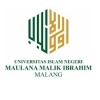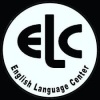AN EPISTEMOLOGICAL REVIEW OF 150 RESEARCH IN LAST THREE YEARS (2018-2020)
Abstract
Full Text:
PDFReferences
Aliaga, M. and Gunderson, B. (2002) Interactive Statistics. [Thousand Oaks]: Sage Publications.
Arikunto, S. 2010. Prosedur Penelitian Suatu Pendekatan Praktik. Jakarta: Rineka Cipta.
Asay, J. (2020). Truth makers Against Correspondence. University of Hong Kong. Published in Grazer Philosophiche Studien.
Bratton, M., & Van de Walle, N. (1997). Democratic Experiments in Africa: Regime Transitions in a Comparative Perspective. Cambridge: Cambridge University Press. https://doi.org/10.1017/CBO97811391 74657
Bryman, A. (2008). Social research methods. Oxford: Oxford University Press.
Cohen, L., Manion, L. and Morrison, K. (2000) Research Methods in Education. 5th Edition, Routledge Falmer, London. http://dx.doi.org/10.4324/97802032 24342
Cook, T. D., & Reichardt, C. S. (Ed.) (1979). Qualitative and Quantitative Methods in Evaluation. Sage Publications.
Creswell, John W. (2009). Research Design: Qualitative, Quantitative, and Mix Methods Approaches Fourth Edition. USA: sage Publication, Inc.
Creswell, J. (2003). Research design: Qualitative, quantitative and mixed methods approach (2nd ed.)
Crotty, M. (1998). The Foundations of Social Research: Meaning and Perspective in the Research Process. London: Sage.
Crotty, M. (2003). The Foundations of Social Research: Meaning and Perspectives in the Research Process (3rd Ed.). London: Sage Publications.
Custers, E, J, F, M. (2019). Theories of truth and teaching clinical reasoning and problem solving. Advances in health sciences education, Vol 24.
Dawson, N, V., Gregory, F. (2009). Correspondence and Coherence in Science: A brief Historical Perspective. Judgment and Decision Making, Vol. 4, No. 2.
D’Brito E.O. (2018). Franz Brentano’s theory of judgment (1889): a critique of Aristotle’s correspondence theory of truth.
Philosophy Department, Universidade Estadual do Centro Oeste (UNICENTRO),
D. Freedman (2008), Editorial: Oasis or Mirage?, Chance v. 21 No 1, pp. 59 -61
Gay, L., Mills, G., & Airasian, P. (2006). Educational research: Competencies for analysis and applications. New Jersey: Pearson Education, Inc.
Guarapuava, PR – Brazil. Fundação Aruacária/CAPES.
Guba, E. (1987). What have we learned about naturalistic evaluation? Evaluation Practice, 8(1), 23-43
Harris, A. H. S., R. Reeder and J. K. Hyun (2009), Common statistical and research design problems in manuscripts submitted to high-impact psychiatry journals: What editors and reviewers want authors to know, Journal of Psychiatric Research, vol 43 no15, 1231 -1234
K. P. Burnham and D. R. Anderson (2002), Model selection and Multimodal Inference: A Practical Information-Theoretic Approach, 2nd ed., Springer.
Leedy, P. & Ormrod, J. (2001). Practical research: Planning and design (7th ed.). Upper Saddle River, NJ:
Marshall, C. & Rossman, G.B. (2006). Forum: Qualitative Social Research, “Designing Qualitative Research”. [Online]. http://www.qualitative- research.net/index.php/fqs/article/view/996/ 2164 [19 Oktober 2016]
Merriam, S.B. (1998). Qualitative Research and Case Study Applications in Education. Jossey-Bass Publishers, San Francisco.
Mestika Zeid, (2004). Metode Penelitian Kepustakaan, (Jakarta : Yayasan Obor Indonesia).
Miller, J. (2004). The Chicago Guide to Writing about Numbers: The Effective Presentation of Quantitative Information, University of Chicago Press.
Niederberger and Dreieck (2020). Qualitative Research methods: A practice-oriented introduction for students of psychology and education.
Petty NJ, Thomson OP, Stew G. Ready for a paradigm shift? (2012). Part 2: Introducing qualitative research methodologies and methods. Manual therapy. 1;17(5):378-84.
Petty, NJ, Thomson. OP, Stew G. (2012). Philosophy of Qualitative Research. USA. Publisher
P. Good and J. Hardin (2006). Common Errors in Statistics (and How to Avoid Them), Wiley.
Philips, M. (2020). Correspondence Theory as a Genuine Theory of Truth. College of Wooster.
Pring, R. (2004). Philosophy of Educational Research, 2nd ed. London: Continuum, p.40.
Qualitative Methods in Public Health: A Field Guide for Applied Research
Qualitative Methods: A Field Guide for Applied Research in Sexual and Reproductive Health
Remhof, J. (2015). Nietzsche's Conception of Truth: Correspondence, Coherence or Pragmatist. Old Dominion University, jremhof@odu.edu
Richards, K. (2003). Qualitative Inquiry in TESOL. Basingstoke: Palgrave Macmillan.
Robbins, N. (2004). Creating More Effective Graphs, Wiley.
Sale JEM, Lohfeld LH, Brazil K. Revisiting the quantitative-qualitative debate:
Implications for mixed-methods research. Quality and Quantity. 2002; 36:43–53. [PMC free article] [PubMed] [Google Scholar]
Schön, D. (1983). Reflections in Action- How professionals think in action, London: Maurice Temple Smith.
Schön, D. (1991). The Reflective Practitioner: How Professionals Think in Action. Aldershot, Ashgate Publishing Ltd.
Shulman, L. (1986). Those who understand: Knowledge growth in teaching. Educational Researcher, 15(2), 4-14.
Silverman, D. (2004). Qualitative Research: Theory, Method and Practice. London: Sage Publications.
Snape, D., & Spencer, L. (2003). The foundations of qualitative research In J. Richie & J. Lewis (Eds.), Qualitative Research Practice (pp. 1-23). Los Angeles: Sage
Strasak, A. M. et al (2007). The Use of Statistics in Medical Research, The American Statistician, February 1, 2007,61(1): 47-55
Strevens, P. (1978). Understanding Second and Foreign Language Learning. In The Nature of Language Teaching. J Richards, (Ed.). pp. 179-202. Rowley, Mass.: Newbury Hous
Sukamolson, S. (2007). Fundamentals of quantitative research. Language Institute Chulalongkorn University, 1-20.
Tuli, F. (2010). The basis of distinction between qualitative and quantitative research in social science: Reflection on ontological, epistemological and methodological perspectives. Ethiopian Journal of Education and Science, 6(1): 97-108.
Van Belle, G. (2008). Statistical Rules of Thumb, Wiley
Walsh, F. (2003). Family Resilience: A Framework for Clinical Practice. Family Process, 42, 1-18.
https://doi.org/10.1111/j.1545- 5300.2003.00001.x
Williams, C. (2011). Research methods. Journal of Business & Economics Research (JBER), 5(3)
DOI: https://doi.org/10.18860/jeasp.v5i1.16579
Refbacks
- There are currently no refbacks.

This work is licensed under a Creative Commons Attribution-ShareAlike 4.0 International License.







Editorial Office:
Pusat Pengembangan Bahasa
Program Khusus Pengembangan Bahasa Inggris (PKPBI)
Universitas Islam Negeri Maulana Malik Ibrahim Malang
Gedung C lantai 1
Jl. Gajayana No 50 Kota Malang, Jawa Timur, Indonesia
Kode Pos 65144, Telp/Fax : (0341) 570872
Email: jeasp@uin-malang.ac.id
JEASP : Journal of English for Academic and Specific Purposes is licensed under a Creative Commons Attribution-ShareAlike 4.0 International











